“Catch up with Israeli news Crazy shit about to happen!!!”
I received this message on Oct. 6 at midnight from my friend Yarin Dan. He is a student at Chico State and an Israeli immigrant who moved to America when he was 13 years old.
The next day I incessantly consumed the news and watched gory videos of the Hamas attacks on Telegram with captions in both Hebrew and Arabic that I could not read. I interpreted the emojis: broken hearts, hearts on fire, crying, laughing and thumbs up emojis. I could not put my phone down.
This summer I spent over a month in Israel. I participated in Birthright, a program that brings young Jews to Israel for a free 10-day trip to connect to Israel, meet Israeli Defense Force (IDF) soldiers and get in touch with their heritage. Once our program ended, I extended my stay visiting soldiers we met and many friends, Israeli and American, I had made along the way.
Though many people like to over-simplify it, the conflict is complicated. In this article, I aim only to share with you some of the people I met in Israel and their reactions to the attacks. These are people like you and me, who did not choose where they were born.
After hearing about the attacks I texted everyone. Leah was one of the first people I contacted (name changed to protect identity). She is a 21-year-old IDF soldier in the intelligence force and practices Orthodox Judaism, which is rare in IDF.
While enlisting in IDF is mandatory for able-bodied men and women, the ultra-orthodox often don’t enlist, because they don’t have to. Leah said multiple members of the Orthodox community warned her not to join because she said there is a record of Orthodox women joining the IDF and leaving the Orthodox faith.
However, joining IDF was something she wanted to do. It was important to Leah to be a part of. Now, two years in, she’s happy with her decision, strong in her faith and planning to sign on for another two years — so she can get a more important role.
Leah was home when the attacks began. This is what she said when I reached out to her:
“I’m fine, it’s been a very hard day
I was at home and woke up this morning to the sound of the rockets
my family and I keep Shabbat, so we didn’t know what’s going on and we were freaking out the whole day
After that we discovered what happened and it was shocking
I still can’t believe it’s really happening.”
Leah is from Modi’in, a suburb near Jerusalem. This is the same town Yarin, my friend who told me the attacks were happening, is from.
Yarin told me that growing up in Modi’in he would sometimes hear rockets exploding. After the recent attacks his mom texted him expressing how relieved she was that their family moved to America.
“At first she made sure that I understood the terror and fear that’s going on, and then she told me how relieved she feels that we are currently in America and don’t have to get drafted. She said that relocating was the best decision she made in her life and that it saved us from the potential danger each Israeli civilian is now exposed to,” Yarin said.
One soldier I met, who requested I refer to him only as Sergeant O, was traveling in Sri Lanka when the attacks happened. He had just finished his service in IDF and was taking his “big trip.” It is customary for Israelis to travel when they finish their service often to East Asia or South America. So much so that going to either place is called taking the “Hummus Trail.”
After the attacks, he was called back to serve in IDF.
In our Birthright group chat, he responded to a message of support:
“It is horrible here you can’t even imagine. They took one of the babies in my town as a hostage
Please help us to spread those crimes in the world”
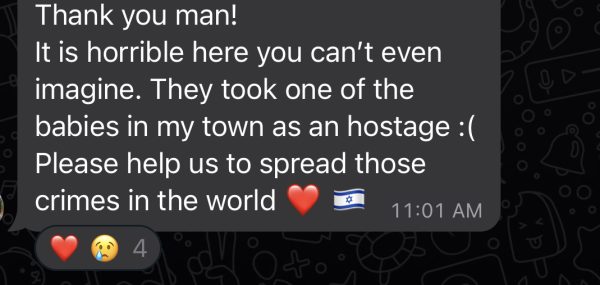
The last time I messaged him he said, “I’m working 24/7 to find the hostages.”
Ofir Lefler was our tour guide on Birthright. He put up with drama, childish behavior and nonsense from our highly American group, and held my utmost respect. He was knowledgeable, kind and incredibly patient.
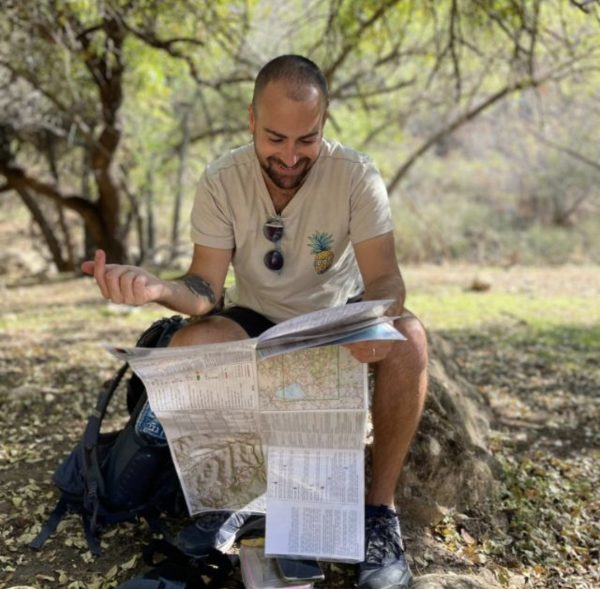
His mom’s side of the family are Yemenite Jews and had to flee to Israel from Yemen after a neighbor attacked his grandfather. His grandparents on his father’s side from Hungary met in a camp for those displaced after the Holocaust. Their entire families were murdered, and they fled to Israel.
After Birthright ended, my friend Jayme and I met up with Ofir and his wife Naama for dinner. They talked about the possibility of moving out of the country. Naama spent time in Minnesota as a child while one of her parents got their Doctorate.
We got on the topic of them having kids and how they would have to join IDF. Naama said that she thinks the IDF is a valuable experience, but that it would be nice to live somewhere where there wasn’t a need for mandatory military service.
When the war broke out, Ofir and Naama were on vacation in India. This is what Ofir said when I reached out to him:
“Hi love,
Very heartbroken, we are on our way back from India, had to scramble a bit because our original flight was canceled
Family is safe for now, holding up, luckily all of them are living in the center and north
Thank you so much for the support
Do you have family around? Are they alright?”
Alemo Abraham was bartending at the hostel I stayed at when I met him. He is an Ethiopian Jew who came with his family to Israel from Ethiopia when he was 8 years old. Alemo said he kissed the ground when he got to Israel, but found that like when he lived in Ethiopia, the government and society contained corruption.
He finished his service in IDF, and is going to college majoring in East Asian studies. Alemo speaks several languages, “Hebrew, English, Spanish, Hindi, Japanese, Mandarin and dance,” he said while smiling and dancing behind the bar the day I met him.
When I reached out to him he replied:
“I am fairly ok
It’s hard to grasp the reality
But I am managing and am with people so I am not digging in the rabbit hole and losing my mind”
On Oct. 10 he shared a video on Instagram of a missile being intercepted by the Iron Dome in Tel Aviv. In the video, you can hear sirens and Alemo saying, “This is fucking insane … May God help us all.”
I met Ashta Yehuda at the train station in Haifa when I was traveling alone to Akko. I was carrying heavy bags and wearing my confused “I’m not from here” expression. The train stations all have security X-rays for bags at the entrance. He was working there and asked if I had any weapons in my bag. He then asked me where I was from, carried one of my bags, helped me get to my platform and waited with me for the train.
We communicated through Google Translate, as his English was minimal and my Hebrew is nonexistent. He asked about my time in Israel and told me he had plans to visit Florida. Once I was on the train, I didn’t see him again in Israel but he kept in touch and checked in on me often.
Now, two months later, he was called back to fight and sent me videos of him in uniform. He said it had been years since he served.
When I reached out to him asking how he was he said:
“OK The situation in the country is not good, so they sent us back to the army. Everything will be fine, God will protect us.”
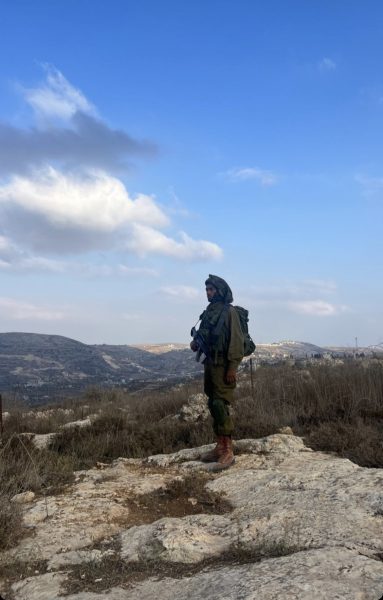
Molly Myers can be reached at [email protected] or [email protected].




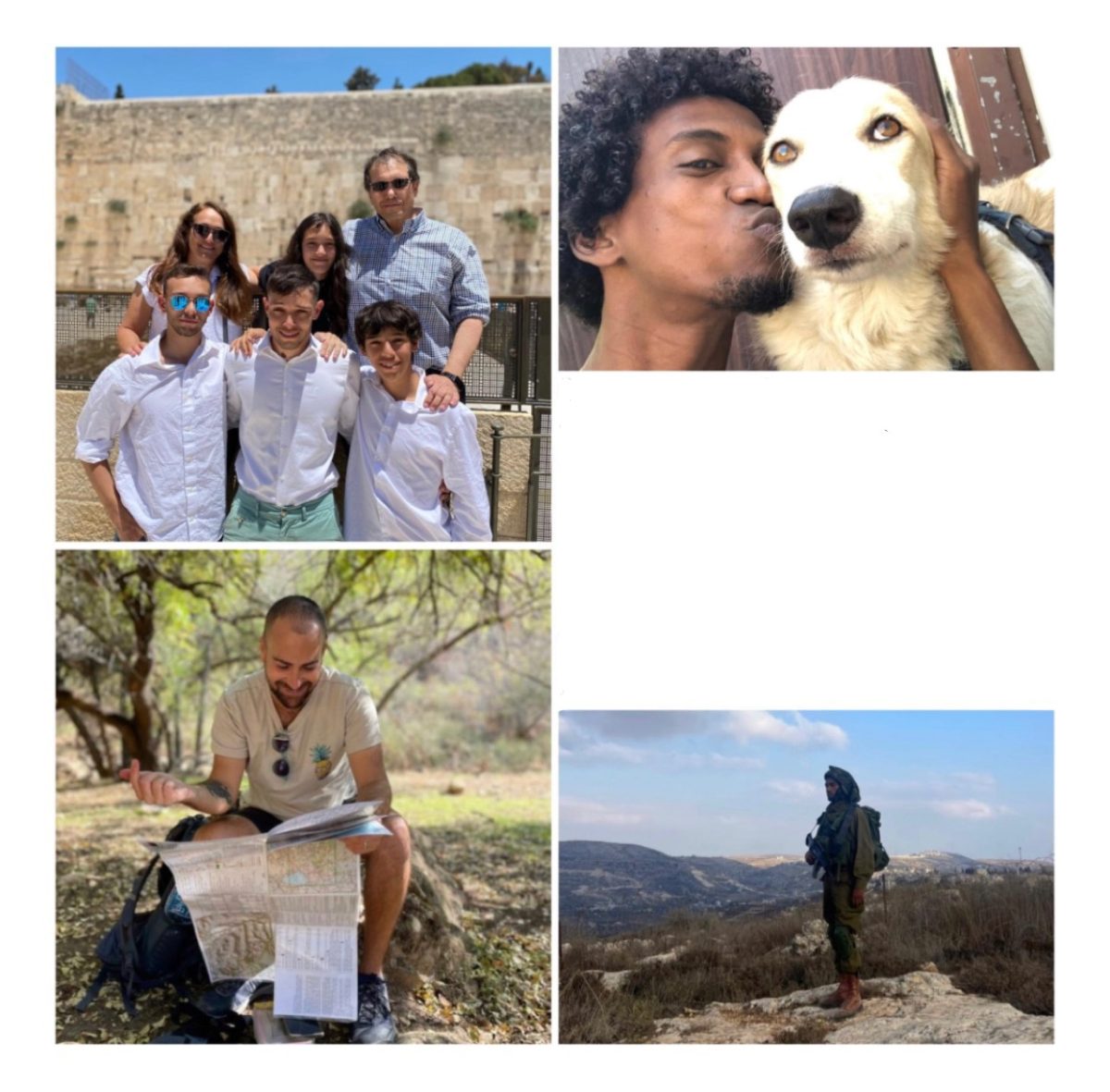
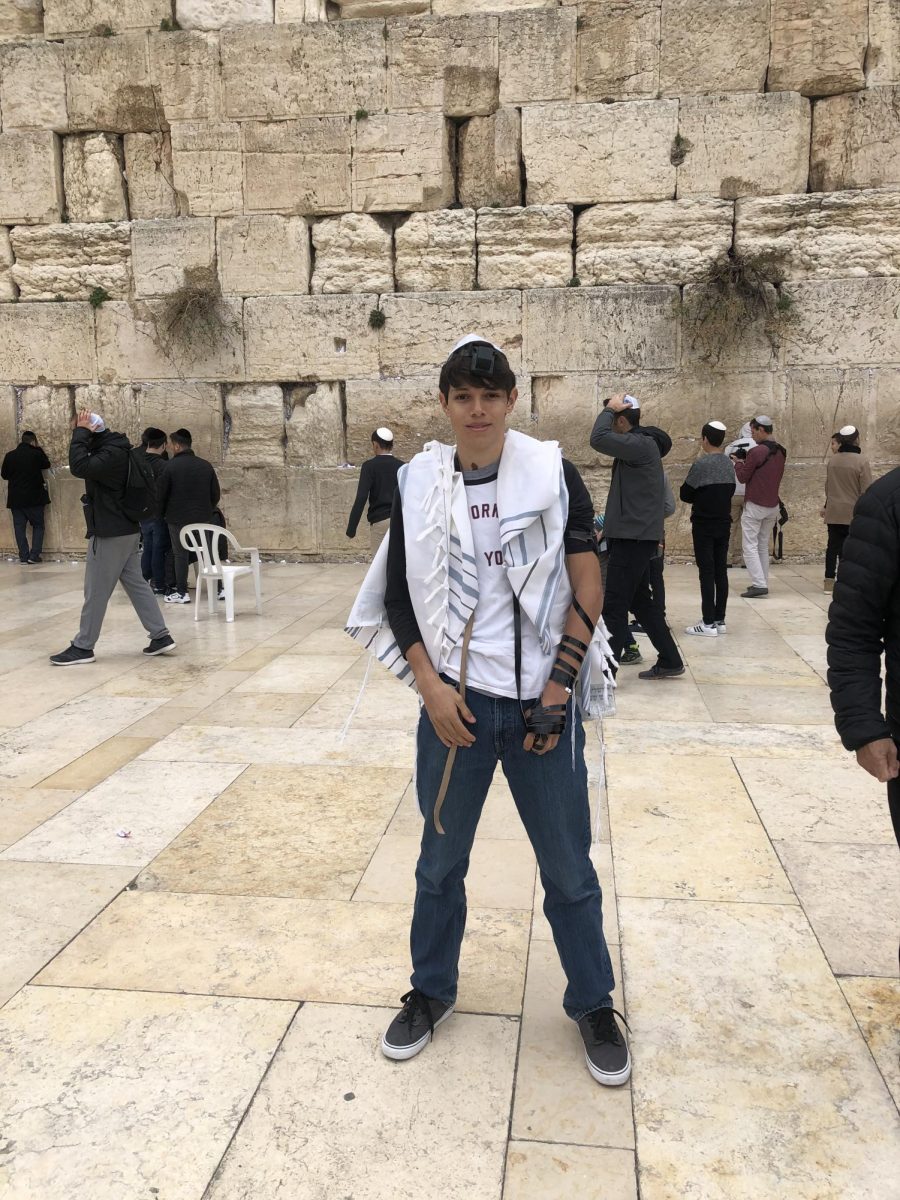
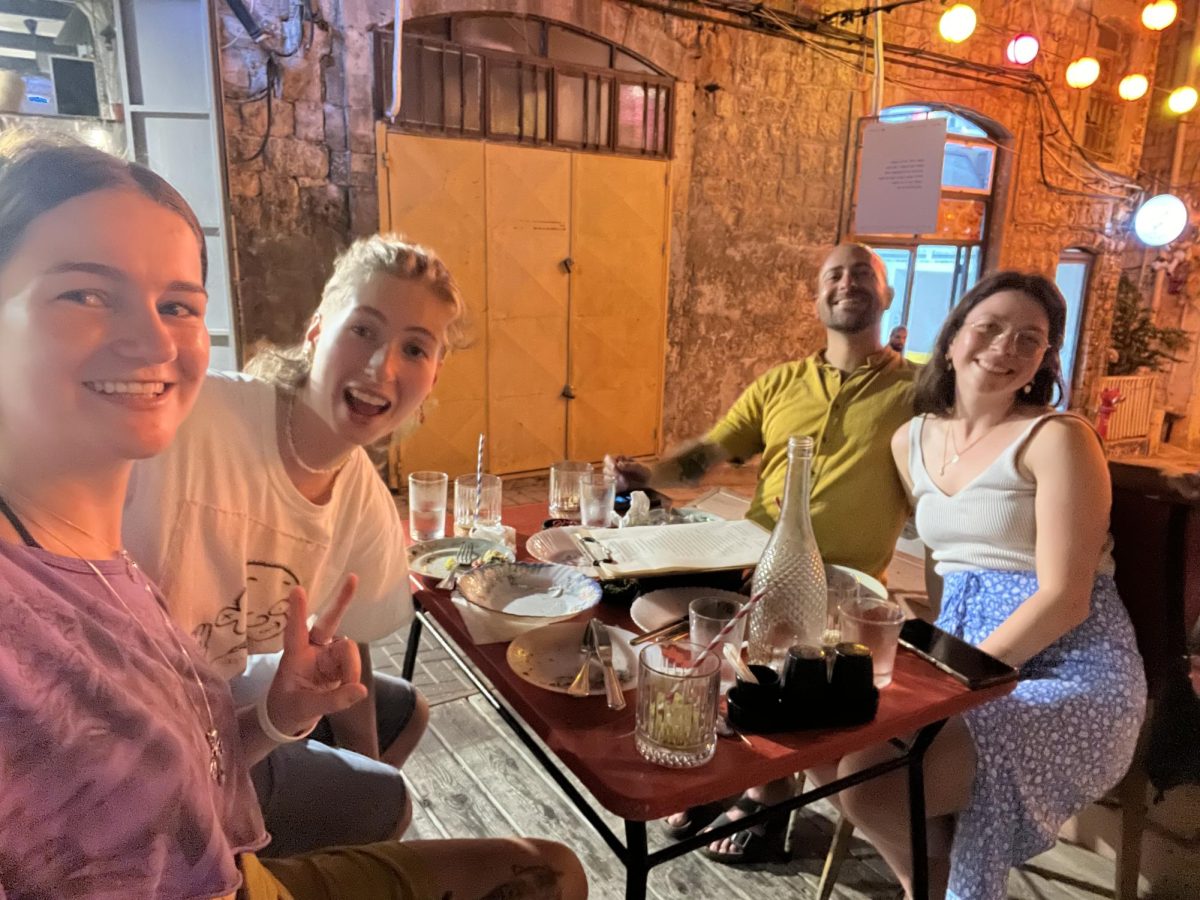
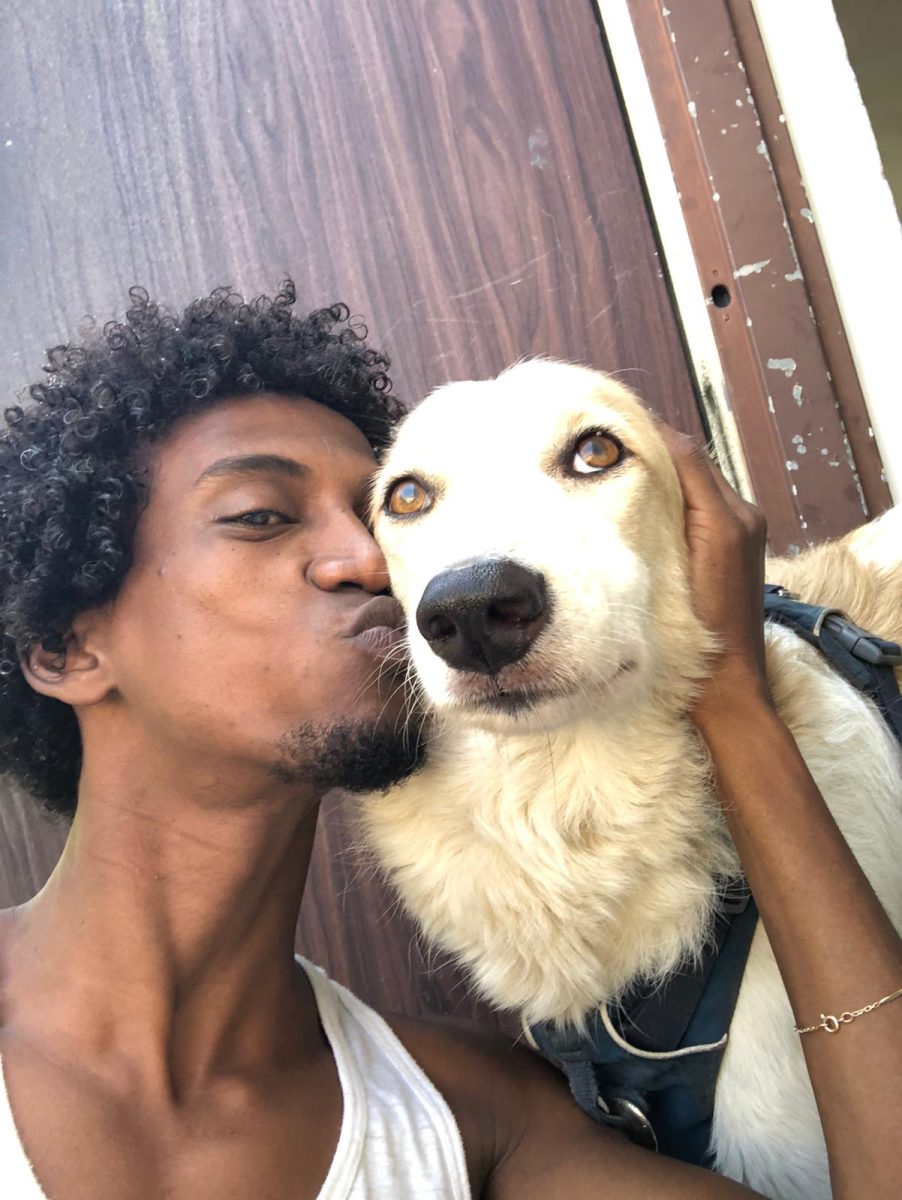
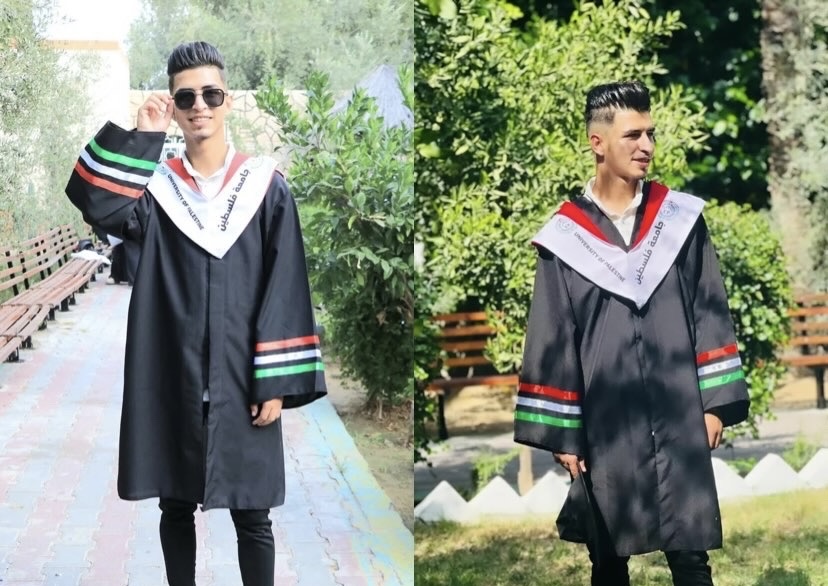

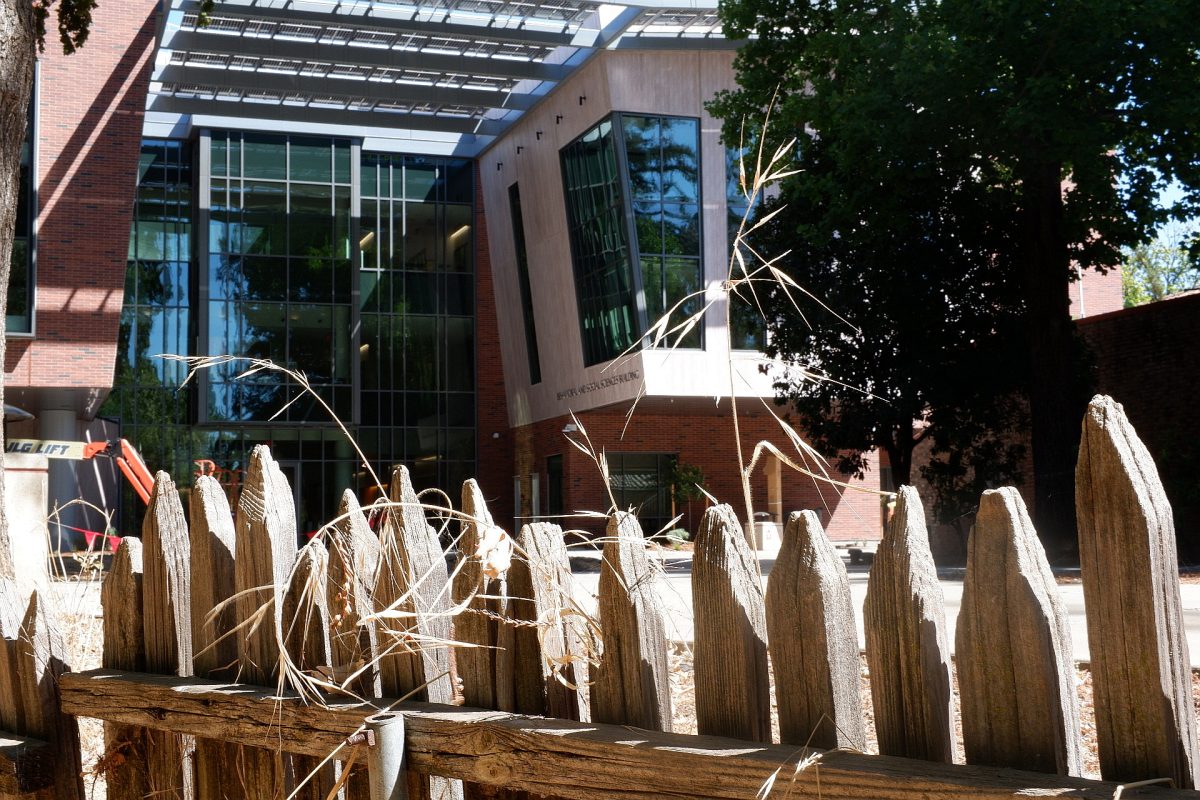
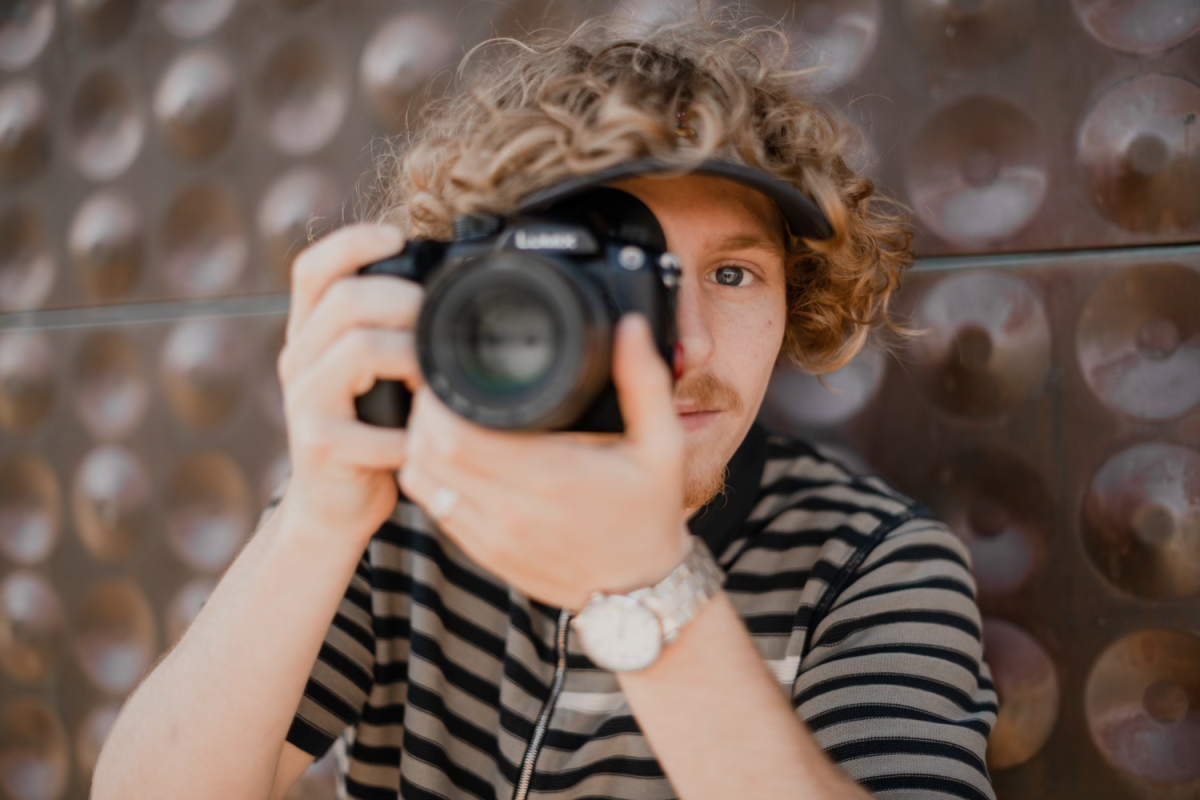
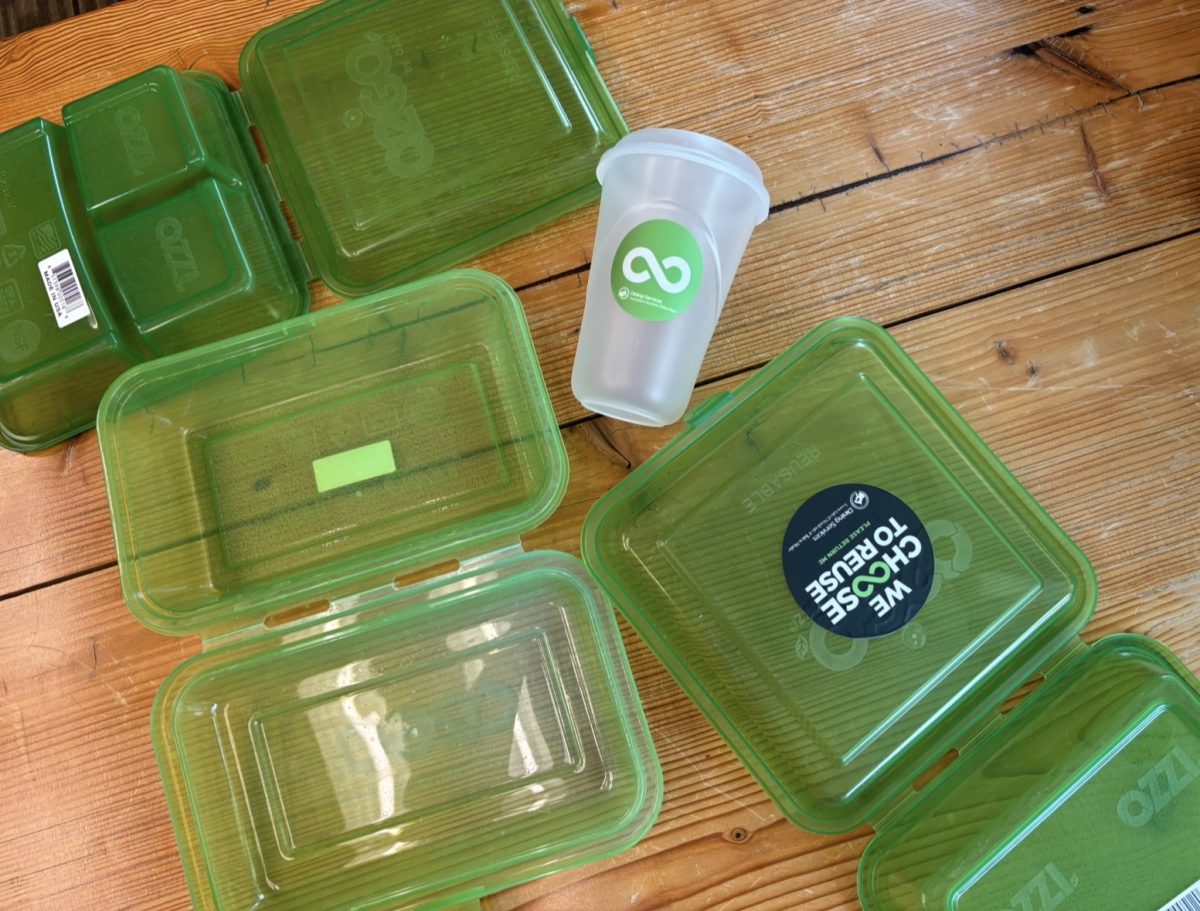
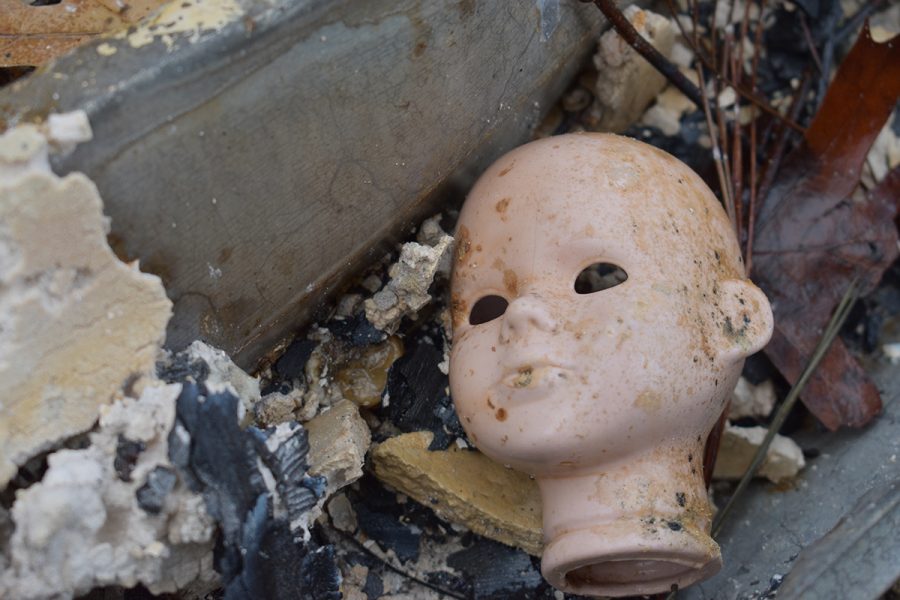






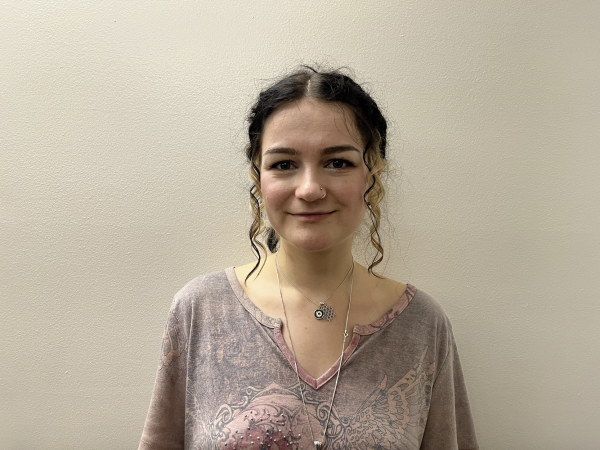
Humberto // Oct 17, 2023 at 10:04 pm
Dear Molly,
I am very heartbroken by what is going on in Israel. Saddened by the atrocities committed by the terrorists, and the continuous loss of innocent human lives, I hope and pray the war ends and doesn’t turn into a world war. But reading this and the stories you share of people on the ground made me humanize the problem and understand it a little better. I know it must be tough but thank you for sharing this!